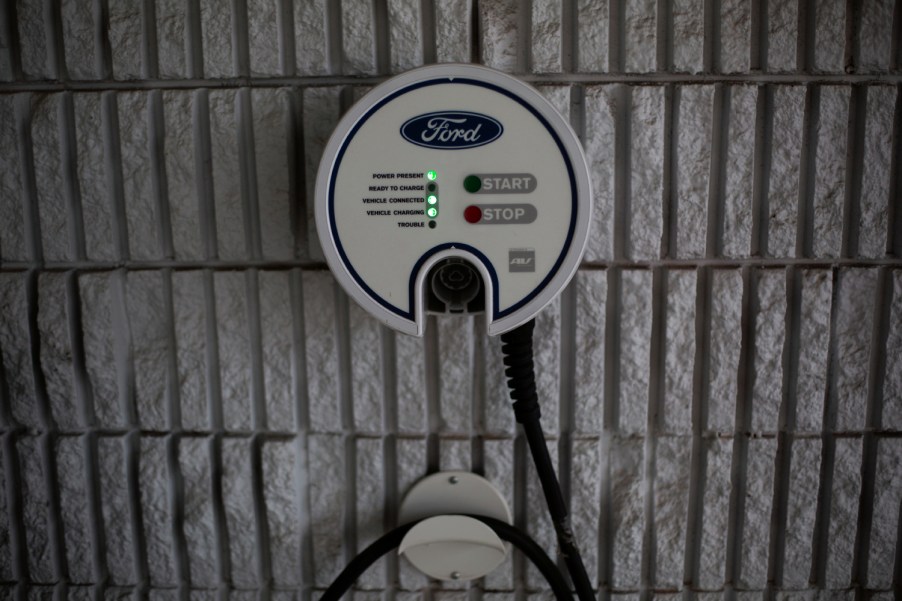
Ford and Purdue Created an Electric Vehicle Charging Cable That Could Give a Full Charge in 5 Minutes
Purdue University and Ford have been working on a solution for slow electric vehicle charging. The new cable technology will allow owners to charge their electric vehicles at a much faster rate. This will cut down charge time and allow more vehicles to charge at a charging station.
Purdue and Ford want your electric vehicle to charge faster

According to Perdue, Purdue University engineers have created an electric vehicle charging cable ready to change the game. The patent-pending charging station cable can charge an electric vehicle in about five minutes. That’s around the same amount of time it takes to fill up a gasoline-powered vehicle.
One of the significant problems facing EV owners right now is overheating. The threat of overheating means vehicles have to charge at a shorter speed, which slows down the process. To charge faster, a higher current needs to travel through the cable. If the current is higher, heat must be removed to prevent damage. DC Fast-Charging will charge at a faster rate, but is harder on the battery over time.
Purdue University engineers have devised an alternative method to cooling. The charging cable designed by Purdue can “deliver a current 4.6 times that of the fastest available EV chargers on the market today by removing up to 24.22 kilowatts of heat.”
Electric vehicle charging is a major source of anxiety for those who want to switch

Back in 2017, Purdue and Ford Motor Co. formed an alliance to develop automobile technology further. Right now, charging times are all over the place depending on several factors. There are various types of electric vehicle chargers and charging locations that can make the process longer than necessary. Purdue says this has been cited as a reason for some potential EV buyers to stick with gasoline vehicles.
“My lab specializes in coming up with solutions for situations where the amounts of heat that are produced are way beyond the capabilities of today’s technologies to remove,” said Issam Mudawar, Professor of Mechanical Engineering at Purdue. Mudawar and his students created a prototype that allows a current of over 2,400 amperes. Right now, the most advanced chargers deliver only currents up to 520 amperes. Most chargers support less than 150 amperes. The idea was to switch from liquid cooling to liquid phase-change cooling, or liquid-to-vapor cooling.
Purdue says that the charging time will vary depending on the power supply, charging cable, and electric vehicle’s battery. To reduce the charging time to under five minutes, all of the components will need to share the 2,500-ampere rating.
This could be a game-changer for EV buyers
There is a lot of work being done behind the scenes on charging technology. If Mudawar and his team at Purdue can continue to develop this technology, it could be a significant breakthrough. Not everyone has access to a charger at home right now, which means updating electric vehicle charging technology is crucial. If Ford and Purdue can shorten the time needed to get a full charge, more people might consider making the switch. Ford and Purdue hope to test the technology with EVs in the coming two years.
In the press release, Purdue seems hopeful this technology can eventually go beyond EVs and into aircraft and spacecraft. Mudawar also has projects with NASA to research “to boost the cooling capabilities of rocket engines and spacecraft.” More testing is necessary, but it seems Purdue is heading in the right direction. Ford recently invested $50 million in electric vehicle battery recycling, too. The race is on, and Ford might be at the front of the pack.



